Long and challenging, the life of an artist. Paths are carved with makeshift tools, memories become art and the people who guide you, meld together piece by piece. Mohammad Kamal Uddin rings with the words of one of his many teachers,
“An artist may leave their home to faraway lands, but their homes live on in their art, within them.”
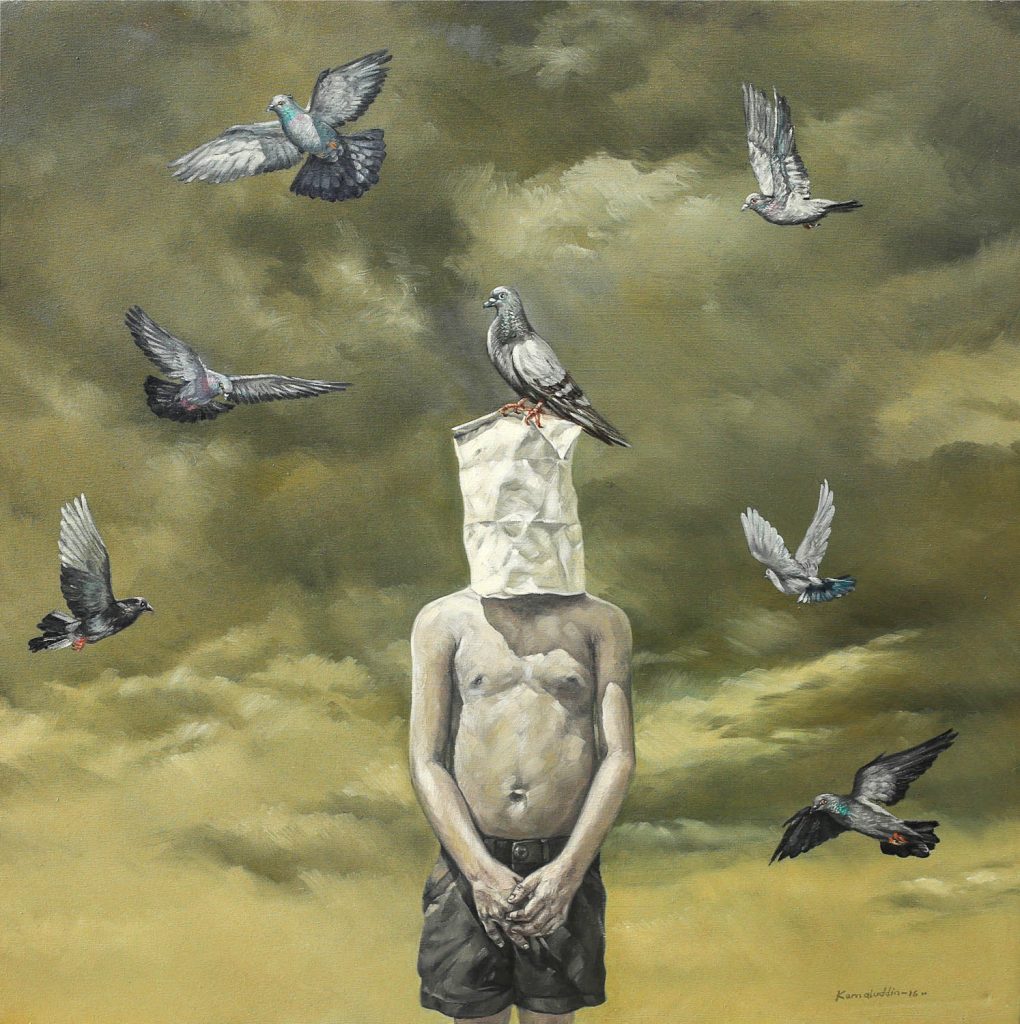
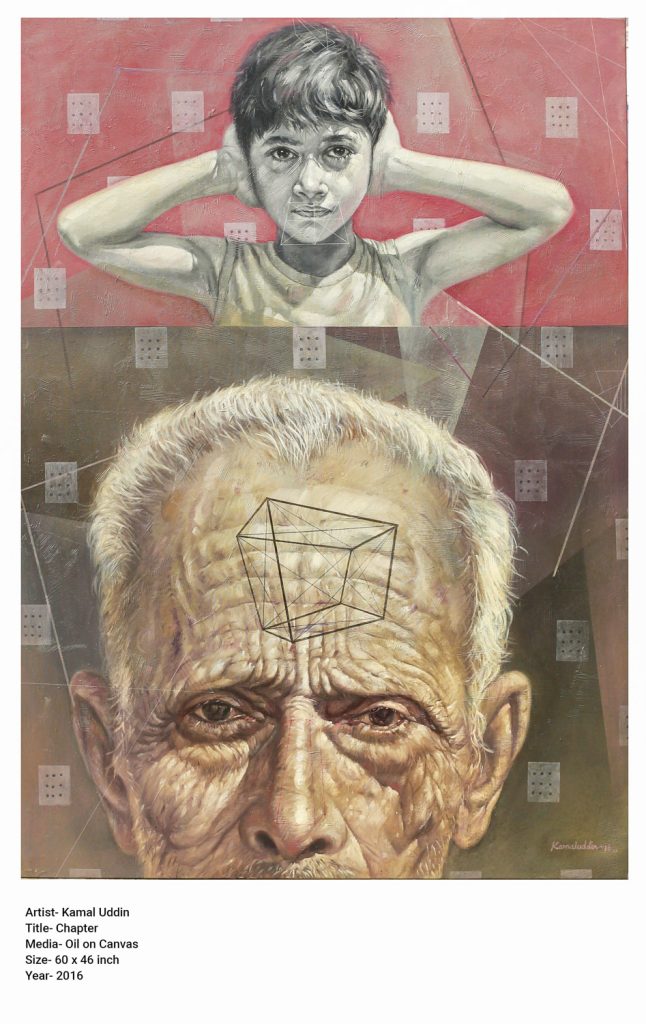
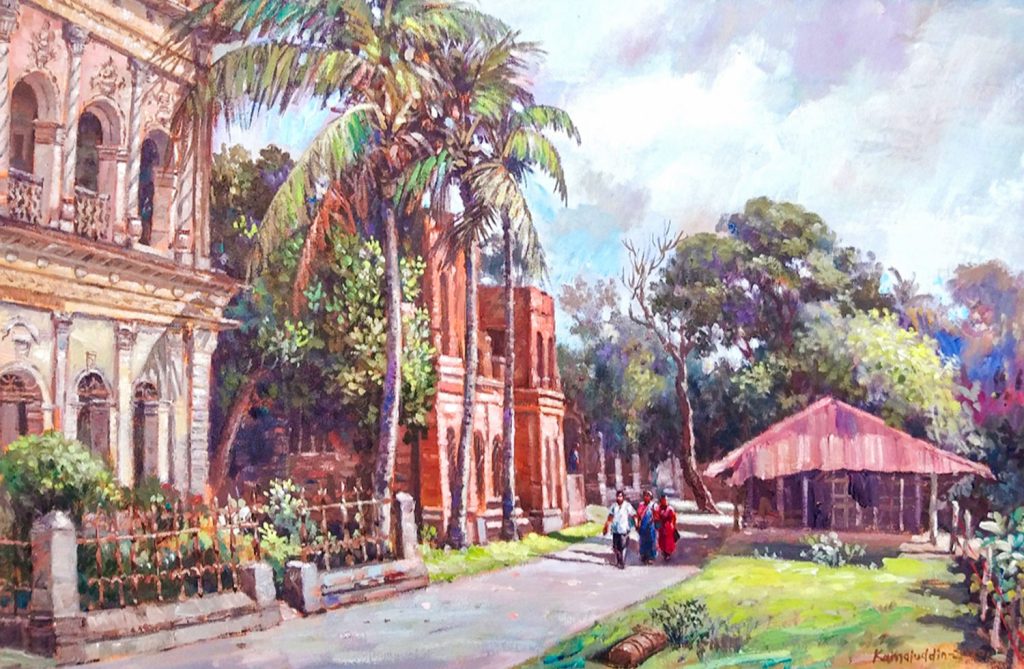
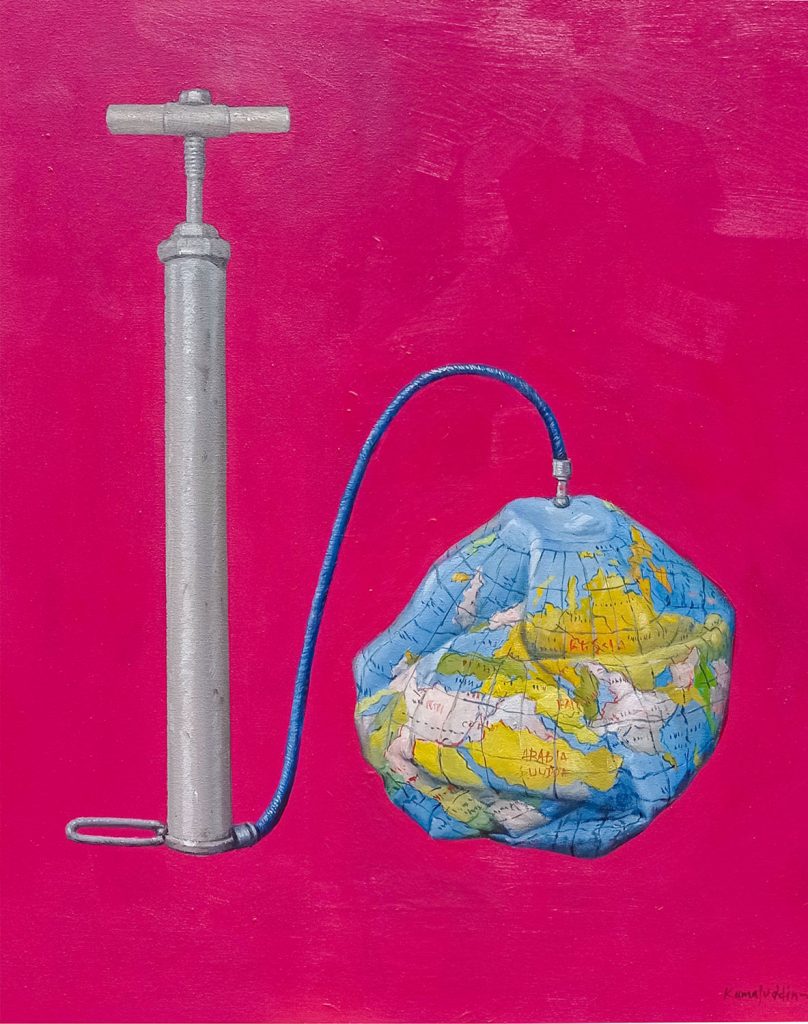
Born in Moheshkhali in Cox’s Bazar, Mohammad Kamal Uddin is now an assistant professor at the Drawing and Painting, Faculty of Fine Arts, University Of Dhaka. He strives to pass along the teaching that have taken root in him and pass it on to future generations of artists, becoming a part of a never ending legacy.
“I was a student before I became a teacher. I had a ‘minimum’ journey. Why I say minimum is, the path to becoming an artist is very long and difficult. No one becomes an artist in a day. We must bear through many obstacles, I’m still walking on that path– I studied at Moheshkhali until I was in college. Everything has changed so much that I don’t think the world and the world 20 years ago is the same at all. Especially in Moheshkhali, everything is different,” says Uddin, recollecting a moment in time long forgotten.
Born in the cradle of nature amid greenery that overwhelms, seeping into every aspect of life both a companion and foe, he states of his life, “As human beings with all impacts of natural disasters. The residents of my hometown struggle against this nature every day just to survive. In an environment like that 30 years ago, wanting to create art was close to impossible. There were no teachers, instruments or the necessary learning facilities to make art. If people wanted paint, they used local supplies, makeshift tools.”
First exposed to art as a third-party observer in the hobby that his brother has stumbled onto as a part of fleeting youth. However Mohammad Kamal Uddin memories of this moment remain crystal clear as though shining on the fringes of his eyes as if reliving them once more.
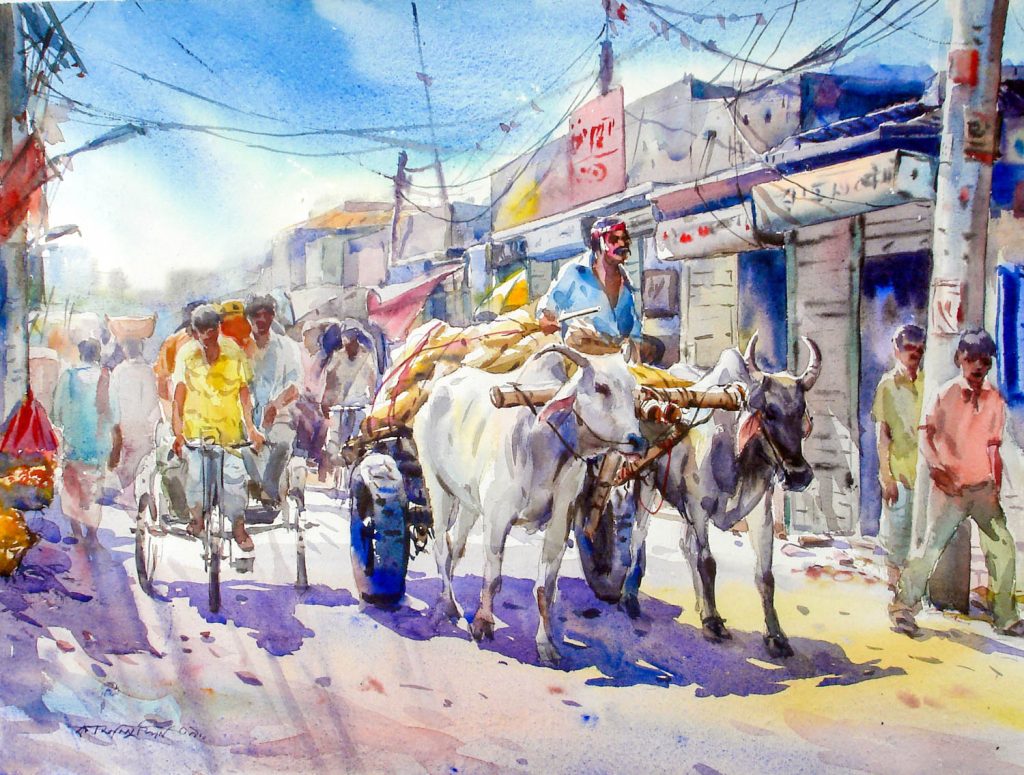
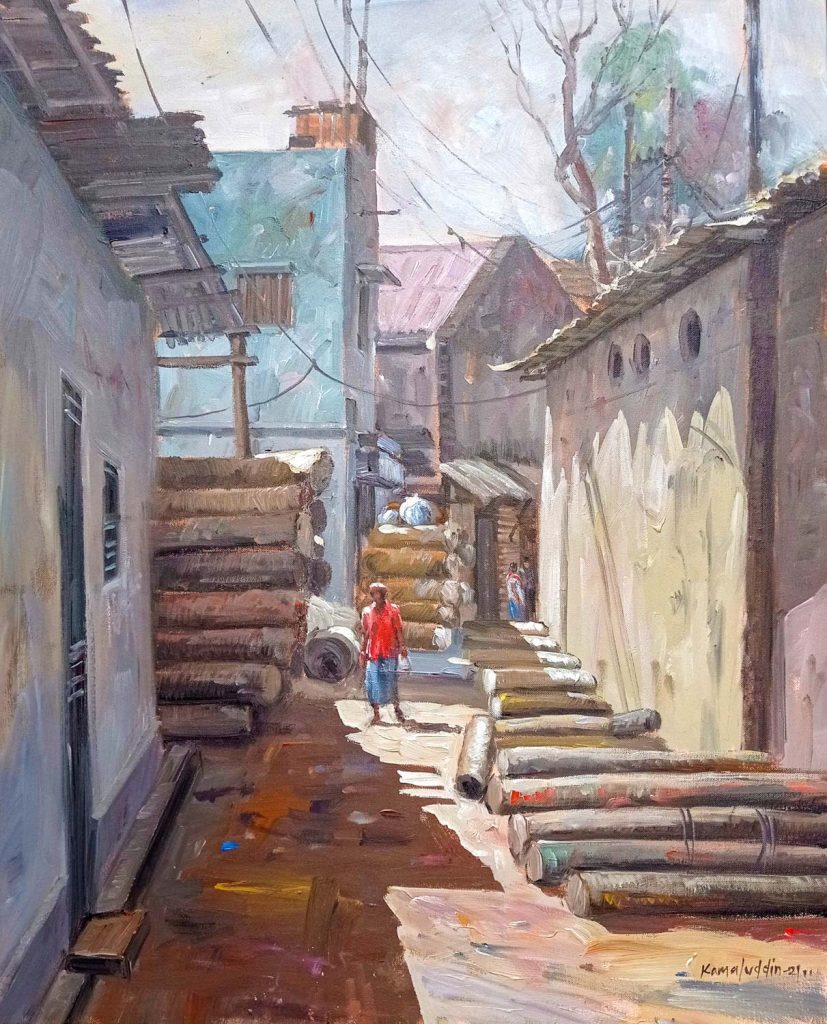
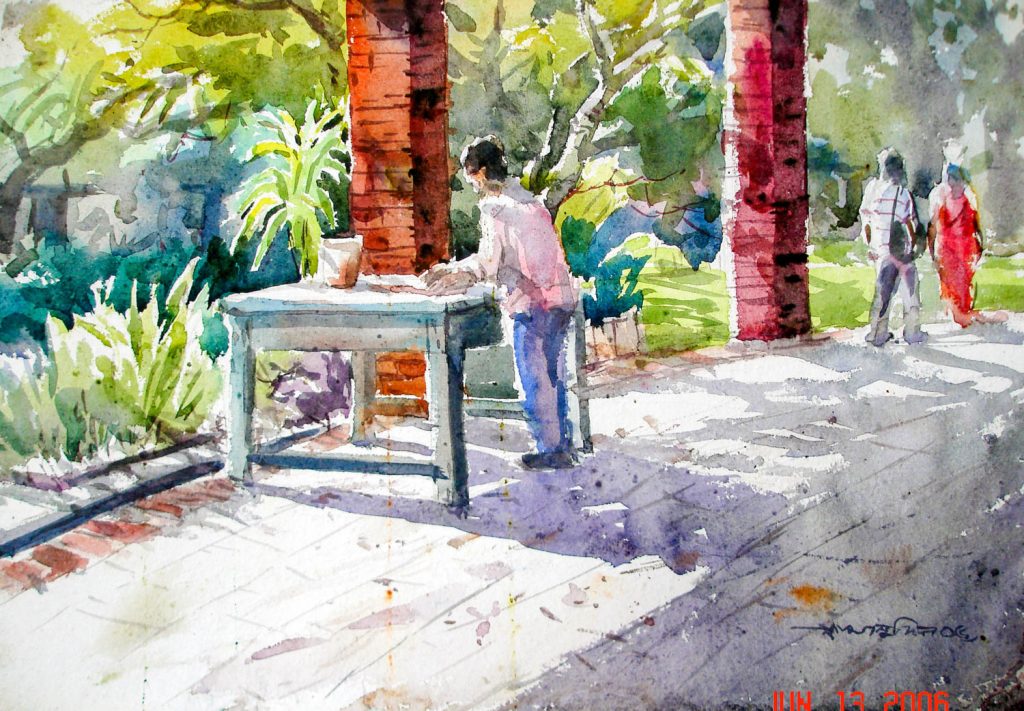
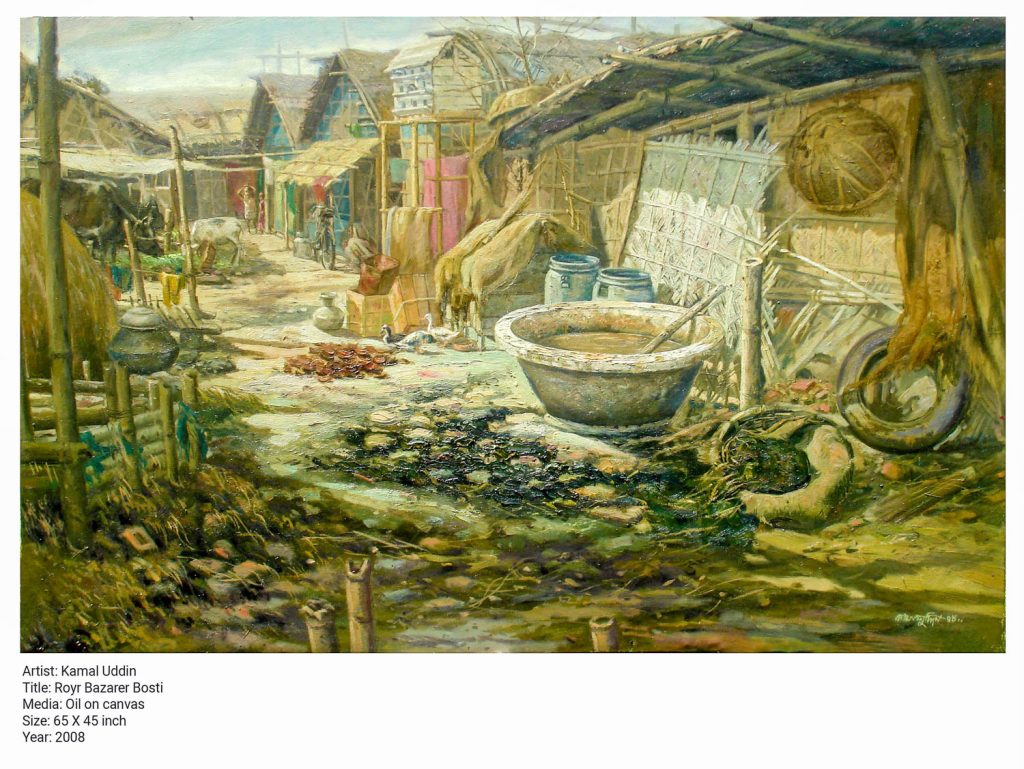
“When I was in the second or third grade, I saw my brother pick up this hobby. I remember my brother painting, how vibrant the colours looked to me and they still look today as I replay those memories once again. While I never saw my brother paint again, and my involvement was limited to the time I spent painting side by side with him. But an artist has to be born, it is a creation. Despite the disconnection from the arts for the years to come, I believe that the artist in me was born in those very moments.”
The multidisciplinary artist’s interest was sparked once more when he was at the cusp of adolescence. He recalls, “I had a Rakhaine friend, Kachenmo, he used to paint in class– The way he made art, I became a diehard fan. I started visiting him a lot at his house to see his work. I never thought I would become an artist myself, I was just an admirer of art. Through years of observation, the tools, technique or grammar of art, I learned from him. One day I asked him, ‘Do you think I can draw?’. His response was ‘I don’t see why not’. So I recreated the painting he had made that day and brought it over to his house the next day. He saw my painting, looked back at me in awe and said, ‘Don’t stop painting’. I believe that was my first proper step onto this journey.” Sharing the story behind one of his pieces Mohammad Kamal Uddin says, “I did some work on the lives of marginalised and oppressed people—There was this one incident where I met this man, a night guard, and I asked him about himself.
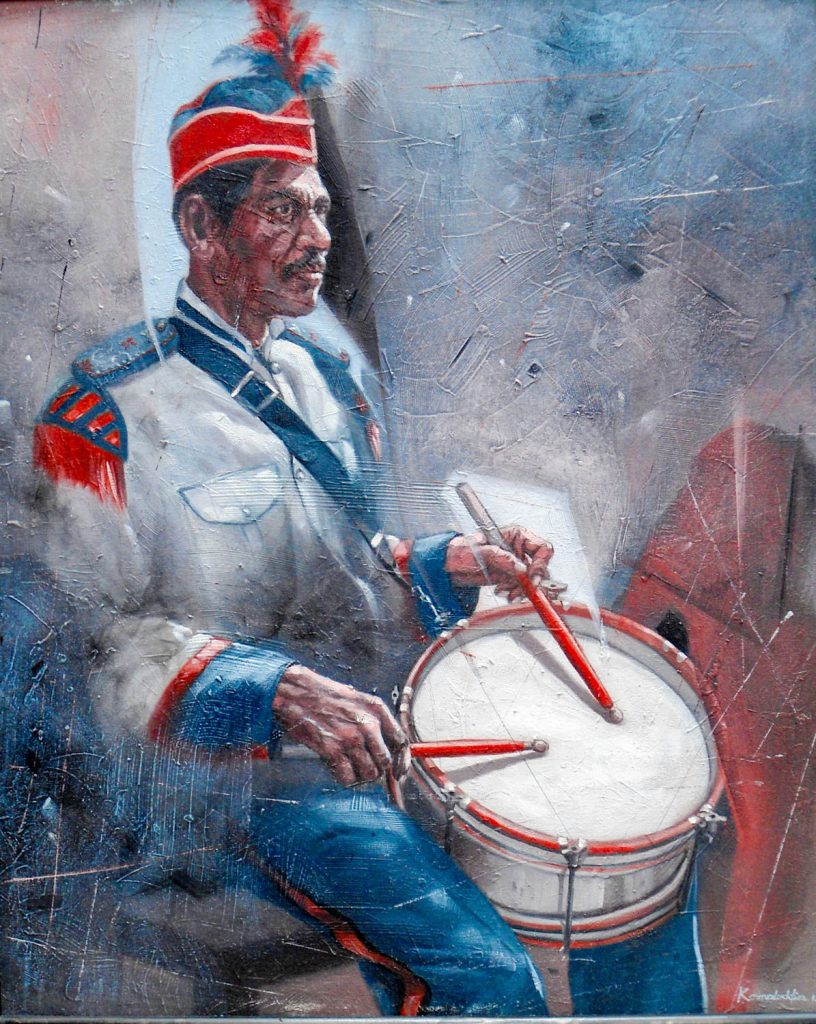
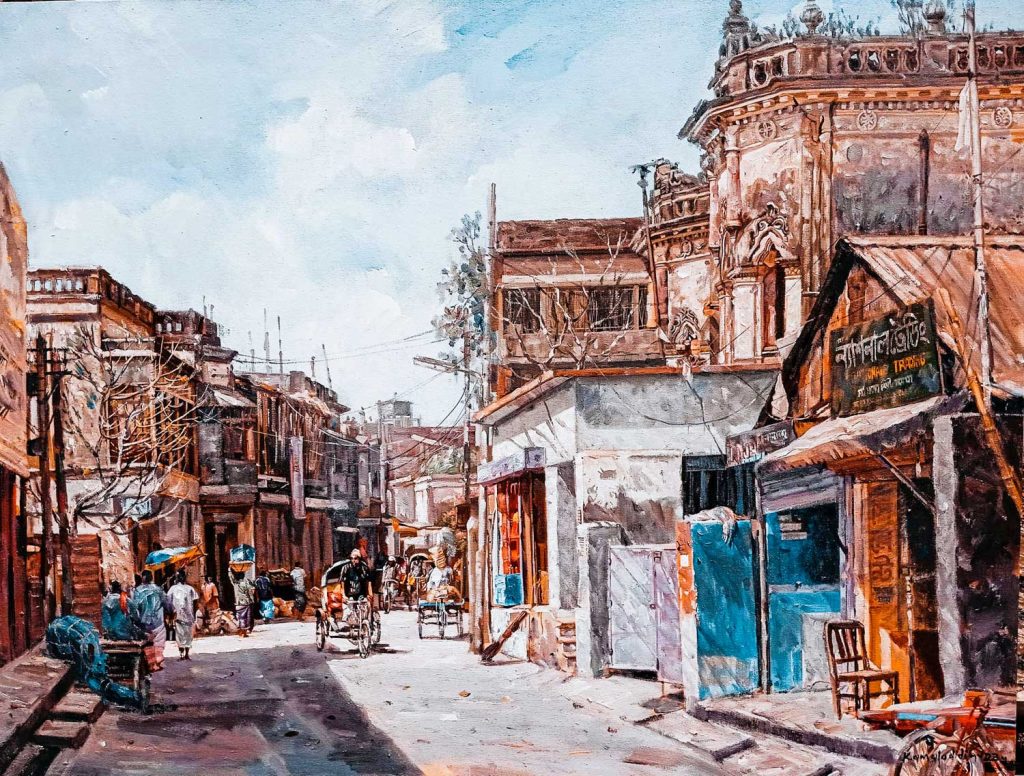
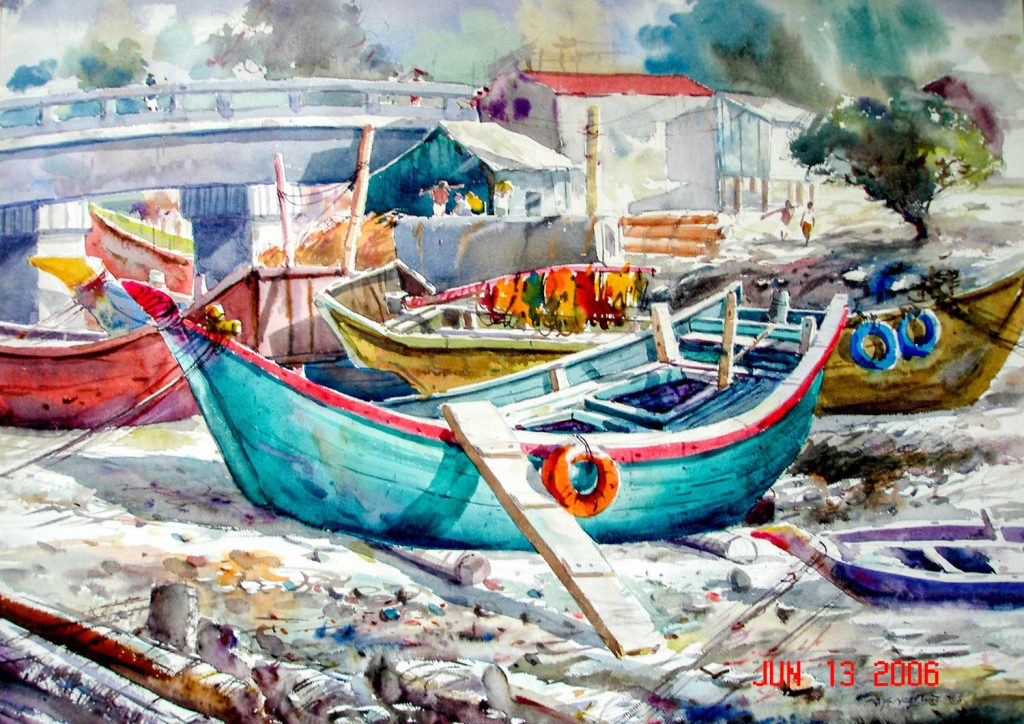
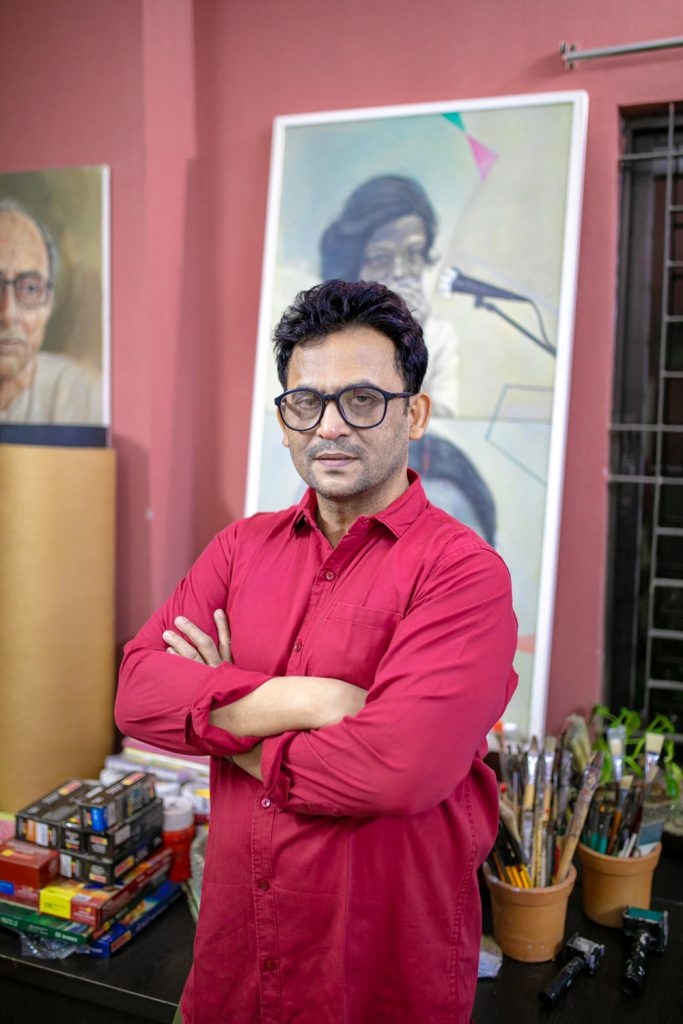
He said ‘I stay up all night,’ pointing to a dog beside him, ‘This dog is my only companion. He always stays beside me, all night. I don’t think I would do this job if I didn’t have this particular dog by my side.’ This individual who works every day, granting people a good night’s sleep. The painting I made of this story, ended up as more of a biopic.” Primarily focusing on figurative work, the artist notes,
“I believe that where I was born has so many ‘ingredients’ for art. Especially the people, they keep coming into my art. The language of art is like a river, changing its path, meandering.”




